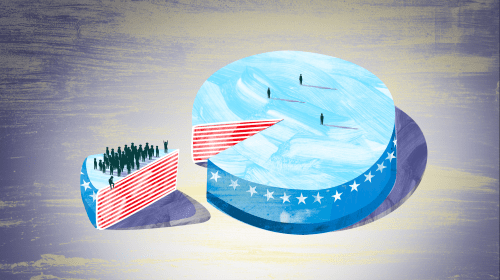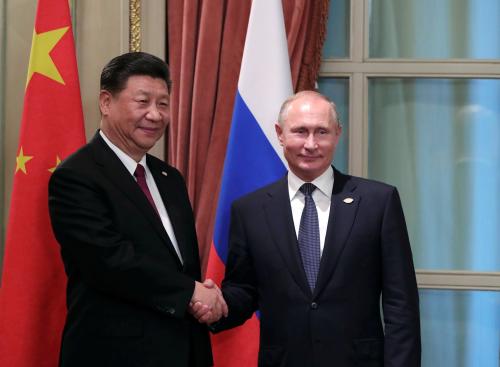Robert Mueller has reported. There was no collusion. There is instead corruption and complacency.
The corruption is obvious. It is why so many of President Trump’s associates have been indicted and some are going to prison. It’s why there has been so much turnover in the cabinet. It’s why the President continues to put his own interests above those of the country.
Complacency, in contrast, has gotten less attention. It’s more about sins of omission than of commission. It’s more about us than about the president. It’s not just what we, as a people, have done, but about what we have failed to do. As Congressman John Delaney puts it, “the cost of doing nothing is not nothing.” The Mueller investigation can’t address these sins of omission. The problems are far deeper and more long-standing.
From the end of World War II until about 1980, democracy worked reasonably well because we were less complacent and more interested in institution building. To be sure, Vietnam and Watergate roiled the country but were resolved through political action. Young people fought for civil rights and marched against the Vietnam War. A president resigned. The economy produced rising incomes but other “indispensable” institutions, such as unions, business leadership, community organizations, as well as government, itself, worked hand in hand with the market to ensure that prosperity was widely shared. Market failures—such as the degradation of the environment—were restrained.
Then the cold war ended and later generations tended to take peace and prosperity for granted. They turned inward and focused more on getting ahead. They watched while our leaders cut our taxes, deregulated for both good and bad reasons, made union organizing more difficult, and allowed businesses to become bigger and less competitive. They worried too little about the effects on people’s lives and the ultimate sustainability of democracy itself. Inequality grew, those affected by trade and technology were left to struggle on their own. Floods and droughts multiplied, and the opioid epidemic devastated communities. The ability of social media to use our personal data to manipulate opinions and affect electoral outcomes was not recognized until it was too late. Our current president may not have colluded with the Russians but he has ignored the threat to the integrity of our elections. The growing influence of money in politics has meant that even though a strong majority supports higher taxes on corporations and the wealthy, tax policy has moved in just the opposite direction. Tax cuts under Reagan, under Bush, and under Trump not only deprived us of the resources we needed to fix some of these problems but were an indictment of democracy itself, a sign that it was out of step with public opinion. Although fiscal and monetary policy saved us from the Great Recession, their ability to do so in the future is now in question.
This complacency has both global and domestic variants. My colleague at Brookings, Robert Kagan, has laid out the global story well. He argues that authoritarianism is a big threat to liberal democracies, that Russia and China are in a stronger position than ever to challenge the United States—and to become models for other nations. Again, the period from the end of World War II until the end of the Cold War was unique; it required U.S. leadership and a willingness to use our resources and power to check tyrants and encourage democracy around the world. Without a commitment to provide that kind of “indispensable” leadership going forward, a liberal world order and democracy itself are at risk. It is a mistake, in Kagan’s view, to assume that a liberal world order can be sustained without American leadership. It is a mistake, in my view, to assume that a liberal democracy at home can be sustained without an active citizenry and a different kind of leadership.
As Kagan notes, a garden does not grow unless it is weeded and fertilized. Similarly, democratic institutions do not flourish without attention. It’s time to start weeding and fertilizing. Our leading gardeners have fallen down on the job. Voter participation rates were up in 2018 but could be a lot higher, especially among the young. Whatever the legal details in the Mueller report, that’s the bigger picture we must keep in mind.
The pressures on Democrats to follow up on the Mueller report with extensive investigations and the tendency of the media to focus on wrong-doing are understandable. But neither will redress the current weaknesses in American society and the urgency of addressing them.
The Brookings Institution is committed to quality, independence, and impact.
We are supported by a diverse array of funders. In line with our values and policies, each Brookings publication represents the sole views of its author(s).






Commentary
Forget collusion, the problem is corruption and complacency
March 28, 2019